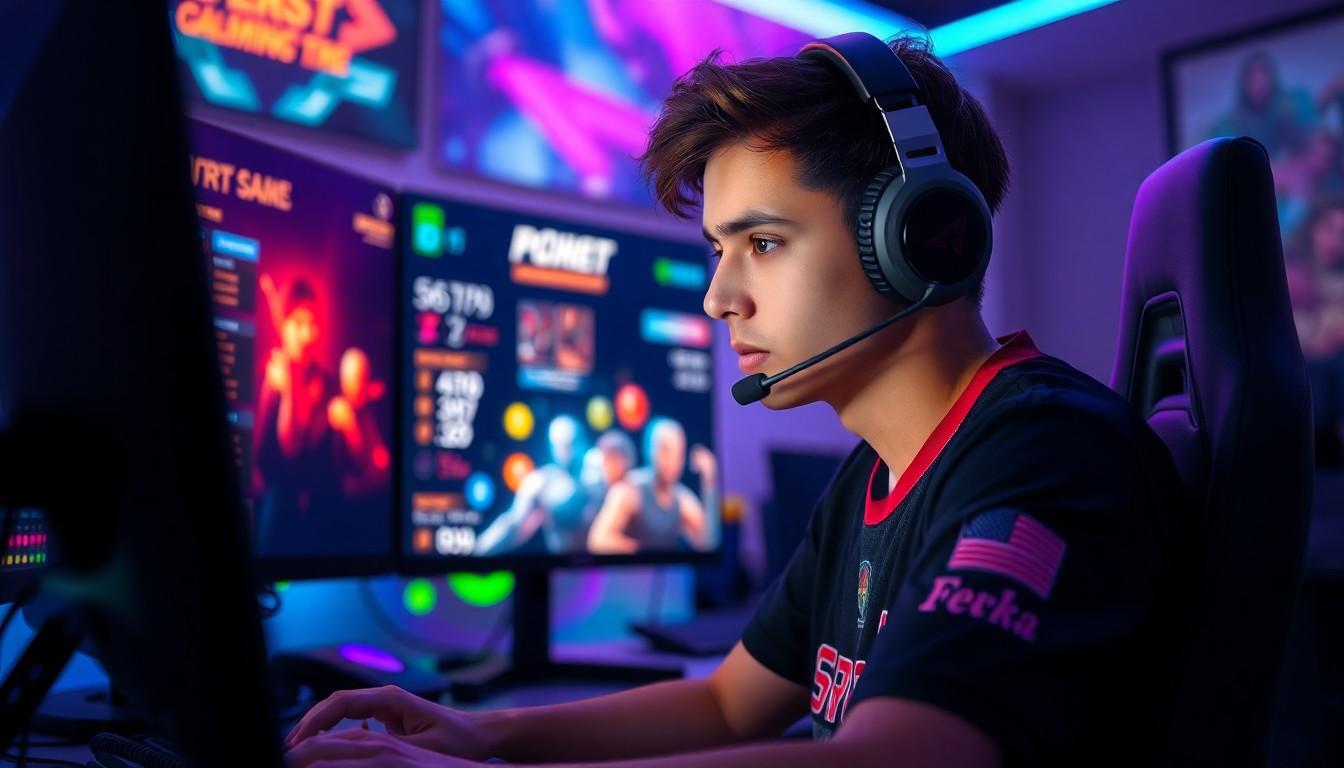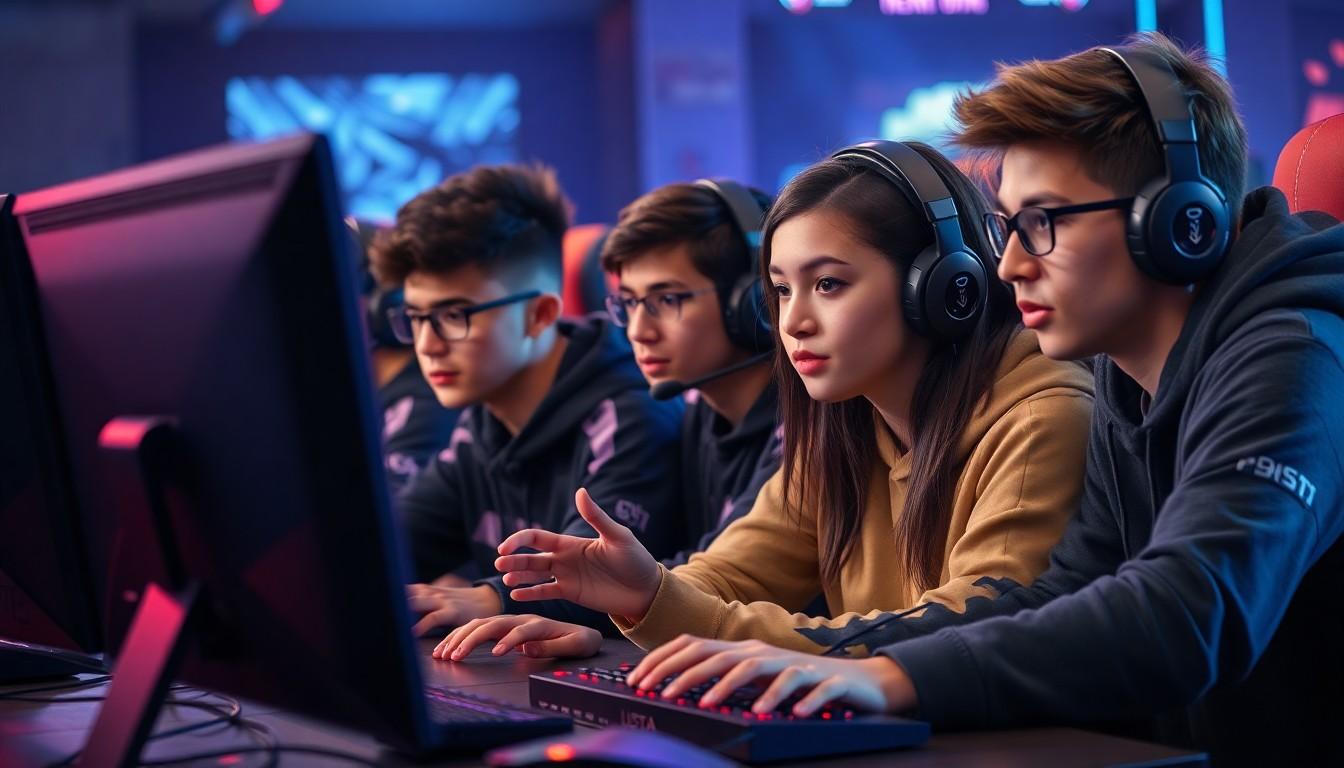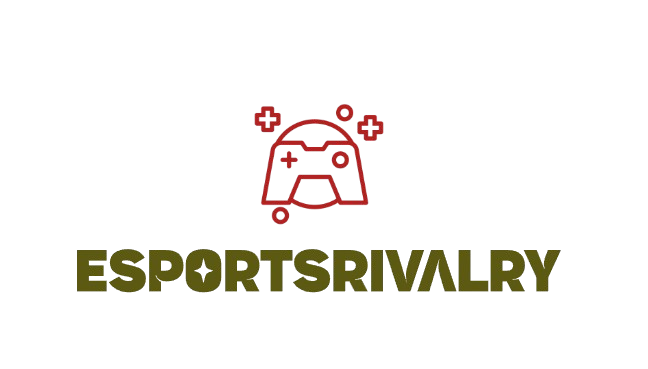
How to Become an Esports Player: Unlock Your Path to Gaming Glory
In a world where gaming isn’t just a pastime but a full-blown profession, the dream of becoming an esports player is more achievable than ever. Imagine trading late-night snack runs for sponsorship deals and your mom finally understanding why you spend hours glued to a screen. It’s a wild ride, and the first step starts with more than just a killer instinct—it’s about strategy, practice, and a sprinkle of humor.
Whether they’re slaying dragons or competing in high-stakes tournaments, aspiring players need to grasp the nuances of the esports landscape. It’s not just about button mashing; it’s about honing skills, building a brand, and mastering the art of teamwork. So, buckle up and get ready to dive into the world of competitive gaming, where the only thing standing between them and glory is a little dedication and maybe a few too many energy drinks.
Understanding Esports
Esports refers to competitive video gaming played in organized tournaments. Various genres exist, such as first-person shooters, real-time strategy, and multiplayer online battle arenas. The landscape continues to evolve, with professional leagues worldwide gaining unprecedented popularity.
Players engage in rigorous training and practice to enhance their skills. Mastery of specific games often requires hundreds of hours of gameplay, strategic planning, and adaptability to evolving game mechanics. Game publishers support esports by organizing events and providing funding, contributing to the professionalization of this industry.
Professional players often represent teams sponsored by brands. Such sponsorship creates financial support for players, allowing them to focus on training. It’s essential for players to market themselves effectively, creating a personal brand that showcases their skills and personality. Social media platforms serve as vital tools for engaging with fans and promoting gameplay.
Teamwork plays a crucial role in esports success. Coordination and communication among team members can determine the outcome of matches. Competitions frequently highlight the importance of synergy and strategies, proving that skill alone isn’t sufficient.
The audience for esports comprises millions globally, with viewership numbers rivaling traditional sports. Live-streaming platforms enable fans to watch their favorite players and tournaments in real time. This accessibility solidifies esports as a legitimate and thriving sector within the entertainment industry.
The future promises growth, with more opportunities emerging. Both player and viewer communities expand, driven by innovative technologies and event formats. Aspiring players must stay informed about trends and adapt their approaches to maintain relevance in this dynamic environment.
Essential Skills for Aspiring Players

Aspiring esports players must develop a range of essential skills to succeed. Game knowledge, strategy and tactics, along with effective communication and teamwork play crucial roles in competitive gaming.
Game Knowledge
Understanding game mechanics is fundamental for players. Players need to learn the rules, character abilities, map layouts, and item systems specific to their game of choice. Familiarity with these elements allows for better decision-making during gameplay. Additionally, keeping up with game updates and patches ensures competitive relevance. Mastering various characters or roles enhances versatility in team settings. A deep understanding of opponents’ strategies also provides a critical edge, allowing players to adapt and counter effectively.
Strategy and Tactics
Strategic thinking drives success in esports. Analyzing matchups and formulating game plans fosters anticipation of opponents’ moves. Players should practice situational awareness to identify opportunities and threats on the battlefield. Tactics, such as positioning and resource management, influence the outcome of games. Regular analysis of gameplay footage reveals strengths and weaknesses, enabling targeted improvement. Incorporating flexibility into strategies allows players to adjust plans in real-time, significantly increasing the chances of victory.
Communication and Teamwork
Communication is vital in team-based esports. Establishing clear channels for verbal and non-verbal cues enhances coordination. Effective team collaboration hinges on trust and understanding among players. Each member’s role contributes to overall success, making it important to respect strategies and feedback. Regular team practice sessions focus on developing synergy and identifying effective playstyles. Emphasizing positive communication fosters a supportive environment, ultimately translating to better performance in high-stakes situations.
Preparing for Competitive Play
Preparing for competitive play involves several key aspects. This preparation lays the groundwork for any aspiring esports player seeking success.
Choosing the Right Game
Choosing the right game is essential for developing specialized skills. Players should consider personal interests and competitive scene popularity. Each genre, including first-person shooters or multiplayer online battle arenas, presents unique mechanics and strategies. Researching current trends helps identify stable games with active communities. Successful players often excel in one genre and refine their skills in that area. Emphasizing strengths within a specific game often leads to better performance and recognition in tournaments.
Setting Up Your Gaming Environment
Setting up an optimal gaming environment can enhance performance significantly. Start with comfortable gaming equipment, such as a high-quality headset, ergonomic chair, and responsive keyboard or controller. Good lighting and minimal distractions create an ideal setting for focus. Players should also ensure a stable internet connection to minimize lag during competitive matches. Customizing in-game settings, such as resolution and sensitivity, fosters better gameplay experiences. Creating a dedicated space promotes consistency and mental readiness for training sessions.
Developing a Practice Routine
Developing a practice routine fosters skill improvement and consistency. Players ought to dedicate time daily or weekly to focus on specific areas of gameplay. Breaking practice into segments, such as aiming drills and strategy review, keeps training engaging. Incorporating match simulations against skilled opponents sharpens decision-making skills and situational awareness. Reviewing recorded gameplay provides insights into areas for improvement. Schedule regular breaks to avoid burnout and maintain peak performance. Balancing focus and relaxation nurtures a positive mindset essential for long-term success.
Building Your Brand
Building a brand as an esports player involves cultivating a distinctive identity that resonates with fans and sponsors. Personal branding creates visibility in a crowded market.
Creating a Strong Online Presence
Establishing an engaging online presence is vital for aspiring esports players. Players should utilize platforms like Twitch, YouTube, and Twitter to showcase their skills. Regularly streaming gameplay helps attract a following, while high-quality content appeals to potential sponsors. Sharing personal insights or strategies can deepen connections with the audience. Consistency in posting content keeps followers engaged and informed. Effective use of social media for updates or interactions fosters community building.
Joining Esports Communities
Becoming part of esports communities enhances networking opportunities and skill development. Players can connect with others through forums, Discord servers, and local gaming events. Participating in discussions or competitions develops camaraderie and exposure. Many communities offer resources such as guides, coaching sessions, or tournament organization, which are valuable for growth. Engaging with fellow gamers promotes collaboration and shared learning experiences. Active involvement in these communities can lead to potential partnerships and sponsorships, essential for a successful esports career.
Finding Opportunities
Aspiring esports players need to actively seek opportunities to establish themselves in the competitive gaming scene.
Participating in Tournaments
Engaging in tournaments serves as a vital step for aspiring players. Local events provide a platform for showcasing skills and gaining experience. These tournaments often attract attention from teams and sponsors looking for fresh talent. Online competitions allow players to compete against a broader audience while eliminating geographical barriers. He or she can start by joining smaller competitions before advancing to larger, well-known events. Consistent participation helps build a player’s reputation and demonstrates commitment to the craft.
Networking with Other Gamers
Building relationships with fellow gamers opens many doors in the esports sphere. Joining forums and social media groups can facilitate meaningful connections with other players. Attending esports events offers opportunities to meet industry professionals and fellow competitors. He or she should focus on exchanging knowledge and strategies, which can enhance their gameplay. Collaborating with other players can lead to practice sessions, boosting overall performance. An active presence in gaming communities shows dedication and passion, key traits that attract potential sponsors and teams.
Conclusion
Becoming an esports player is a journey filled with challenges and opportunities. Aspiring players must embrace the commitment required to hone their skills while staying informed about industry trends. Building a personal brand and fostering teamwork are essential components of this path.
Engagement with the gaming community and participation in tournaments can significantly enhance a player’s visibility and reputation. As the esports landscape continues to evolve, those who adapt and remain dedicated will find their place in this dynamic and exciting field. With passion and perseverance, the dream of becoming a successful esports player is within reach.
